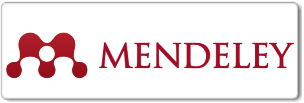Australia’s legislative response to the Basel Convention and the 2019 amendment to the convention
EN
DOI:
https://doi.org/10.58954/epj.v1i3.69Keywords:
Basel convention, hazardous waste, AustraliaAbstract
The Basel Convention is an international treaty which regulates the transboundary movement of hazardous waste across boarders, which impacts nations waste exportation and importation policies This paper discusses Australia’s implementation of the Basel Convention for the Control of Transboundary Movement of Hazardous Wastes and Their Disposal. By analysing legislation, academia and media pertaining to the topic this Article explores the history the Basel Convention for the Control of Transboundary Movement of Hazardous Wastes and Their Disposal, particularly emphasising the drafting process and the purpose of the legislation. Subsequently investigating Australia’s legislative implementation of its obligations. Ultimately this paper investigates Australia’s practices, with a particular emphasis placed on waste around Waste to Energy processes, against these obligations and the extent that Australia is upholding their obligations. This is done by exploring international trends away from plastic waste exportation the 2019 amendments of the Basel Convention. The article finds language used in the treaty impacts the ability to determine breaches of the treaty, however, notes various legislation that reinforce Australia’s commitment to the treaty. This is done without ruling out possible misconduct in the past.
References
Australian Department of Agriculture, Water and Environment. (n.d.a). Exports of plastic waste. https://www.environment.gov.au/protection/waste/exports/plastic
Australian Department of Agriculture, Water and the Environment. (n.d.b). Waste exports. https://www.environment.gov.au/protection/waste/exports
Basel Action Network. (2021, July 19). Indonesia to allow waste imports with 2% contamination limit. https://www.ban.org/news/2021/7/19/indonesia-to-allow-waste-imports-with-2-contamination-limit
Basel Convention for the Control of Transboundary Movement of Hazardous Wastes and Their Disposal 1989
Center for EcoTechnology. (2018, 9 May). What is the National Sword?. https://www.centerforecotechnology.org/what-is-the-national-sword/
Conley-Tyler, M and Hawkins, R. (2020, July 8). Australia’s Asia Diplomacy in the Recycling Bin. Asialink. https://asialink.unimelb.edu.au/insights/australias-asia-diplomacy-in-the-recycling-bin
Dehm, J., & Khan, A. (2019). "North-South Transboundary Movement Of Hazardous Wastes – The Basel Ban And Environmental Justice". In Research Handbook on Law, Environment and the Global South. Cheltenham, UK: Edward Elgar Publishing.
Diss, K. (2019, July 16). Recycled electronics are turning Thailand into a 'dumping ground for hazardous waste'. ABC news. https://www.abc.net.au/news/2019-07-16/recycled-tech-from-western-nations-destroying-thai-villages/11274578
GHD. (2009, August). Waste Technology and Innovation Study Final Report. http://www.environment.gov.au/system/files/resources/4e70769b-1802-42c3-96d7-5ee3874c821f/files/waste-technology.pdf
Global Alliance for Incineration Alternatives. (2019). We have too much plastic that has nowhere to go… can we just burn it?. https://www.no-burn.org/wp-content/uploads/Plastic-x-Incineration-2019.pdf
Hazardous Waste (Regulation of Exports and Imports) Act 1989 (Cth). https://www.environment.gov.au/protection/hazardous-waste/about
International Pollutants Elimination Network (IPEN). (2020, November 10). South East Asian Regional Groups Condemn Australia’s Stealthy Waste Export Plans. https://ipen.org/news/south-east-asian-regional-groups-condemn-australia%E2%80%99s-stealthy-waste-export-plans
Krueger, J. (1999). International Trade and The Basel Convention. Earthscan
Lipson, D. (2019, July 19). Indonesia to send back Australian paper waste 'contaminated' by dirty nappies and electronics. ABC news. https://www.abc.net.au/news/2019-07-09/indonesia-to-ship-back-contaminated-australian-waste/11292540
Lucier, C. A., & Gareau, B. J. (2016). Obstacles To Preserving Precaution And Equity In Global Hazardous Waste Regulation: An Analysis Of Contested Knowledge In The Basel Convention. International Environmental Agreements : Politics, Law and Economics, 16(4), 493-508
Mannix, L. (2018, February 23). $13m recycling rescue package announced, but rates will rise. Sydney Morning Herald, https://www.smh.com.au/national/13m-recycling-rescue-package-announced-but-rates-will-rise-20180222-p4z18u.html
MRA Consulting Group. (2021, March 31). Waste Plastics Industry Standards: A Submission to the Department of Agriculture, Water and the Environment. http://www.environment.gov.au/system/files/resources/57f17e26-bac0-44f4-a827-bd348478ef3b/files/waste-plastics-industry-standards-report.pdf
Parliament of Australia. (2020). Recycling and Waste Reduction Bill 2020. https://www.aph.gov.au/Parliamentary_Business/Bills_Legislation/Bills_Search_Results/Result?bId=r6573
Recycling and Waste Reduction Act 2020 (Cth). https://www.legislation.gov.au/Details/C2020A00119
The Allen Consulting Group. (2001). The Hazardous Waste (Regulation of Exports and Imports) Act 1989 A National Competition Policy Review. http://ncp.ncc.gov.au/docs/AG%20Review%20of%20the%20Hazardous%20Waste%20%28Regulation%20of%20Exports%20and%20Imports%29%20Act%201989%2C%20February%202001.pdf
The Centre for International Economics. (2020). Costs and benefits of banning exports of Waste. http://www.environment.gov.au/system/files/resources/1927a4eb-a3cb-457b-a695-9fc62e064444/files/costs-benefits-banning-exports-waste.pdf
Uhm, Y. (2021). Plastic Waste Trade in Southeast Asia After China’s Import Ban: Implications of the New Basel Convention Amendment and Recommendations for the Future. California Law Review, 57(1) article 9, https://scholarlycommons.law.cwsl.edu/cgi/viewcontent.cgi?article=1713&context=cwlr
United Nations Environment Program. (2021). “Basel Convention Overview” http://www.basel.int/TheConvention/Overview/tabid/1271/Default.aspx
United Nations Environment Program. (n.d.). Questions and answers related to the Basel Convention Plastic Waste Amendments. http://www.basel.int/Implementation/Plasticwaste/PlasticWasteAmendments/FAQs/tabid/8427/Default.aspx
Wilder, M. (1998). The International Movement Of Hazardous Waste: Making A Permit Application Under Australian Law. Australian Mining and Petroleum Law Journal (1997-2002), 17(4), 391-412.
World Bank. (2018). Indonesia - Marine debris hotspot rapid assessment : synthesis report (English).https://documents1.worldbank.org/curated/en/983771527663689822/pdf/Indonesia-Marine-debris-hotspot-rapid-assessment-synthesis-report.pdf
World Energy Council. (2013). Waste to Energy. https://www.worldenergy.org/assets/images/imported/2013/10/WER_2013_7b_Waste_to_Energy.pdf
United Nations Environment Program. (c.2021). Amendment to the Basel Convention on the Control of Transboundary Movements of Hazardous Wastes and their Disposal.
http://www.basel.int/Countries/StatusofRatifications/BanAmendment/tabid/1344/Default.aspx
Downloads
Published
How to Cite
Issue
Section
License
Copyright (c) 2021 Emily Bradford, Matthew Grice

This work is licensed under a Creative Commons Attribution 4.0 International License.











